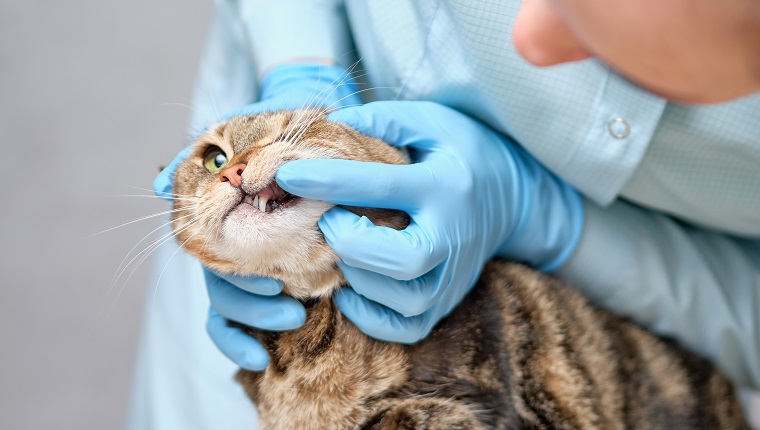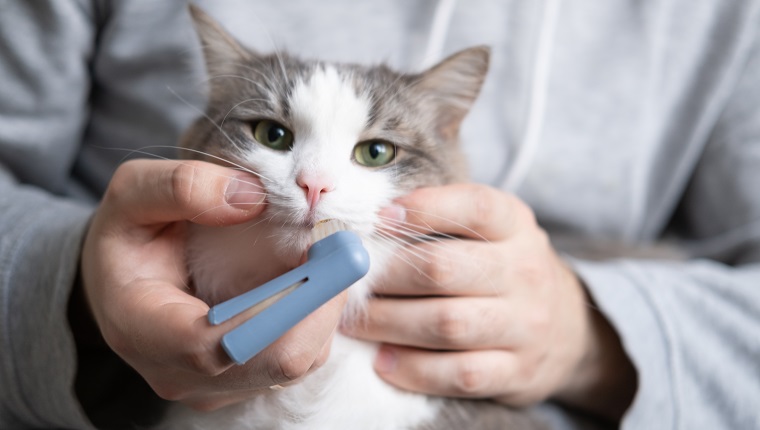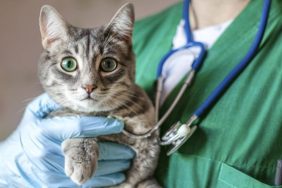Bad breath in cats, also known by the medical term halitosis, is a condition that usually results from periodontal (gum) disease caused by a buildup of tartar and plaque.
Certain breeds of cat appear to have a higher predisposition for bad breath than others, including Persians and Himalayans.
If you see — or smell! — signs that your cat might be suffering from halitosis, then you must consult your veterinarian for a proper diagnosis and course of treatment. Here’s what you should know about the symptoms, causes, and treatments of bad breath in cats.
Symptoms Of Bad Breath In Cats
Bad breath in cats brings on the primary symptom of a very off-putting and stinky odor. Some of the other associated symptoms include:
- Drooling a lot
- Developing anorexia
- Trying to paw at the mouth at lot
Causes Of Bad Breath In Cats

Bad breath in cats most commonly appears due to periodontal disease, especially a buildup of plaque and tartar.
Some of the other frequent causes include small particles of food building up in pockets in and around the teeth, dead tissue in the mouth, and bleeding in the mouth.
In rarer cases, trauma has also been linked to causing halitosis in cats.
Veterinary Treatment
If you smell that your kitty is suffering from bad breath, your veterinarian will want to carry out a proper examination of their mouth and teeth. They can also find x-rays very useful in figuring out the root cause of the foul odor.
When providing treatment, a thorough cleaning of the teeth is often a starting point. This process happens while a cat is under anesthesia and will also include polishing the teeth.
In cases where damaged or rotting teeth are the cause of the issue, your vet may need to remove individual teeth. If it’s the result of bleeding in the mouth, your vet may suggest medication.
As ever, if your vet prescribes your cat any medicine, it’s vital that you stick to the precise dosage and frequency instructions and complete the full course of medication.
In general, it’s best to try and lessen the chances of your cat developing halitosis by maintaining a proper dental care and cleaning routine. Your vet can advise you on safe and suitable products to use and suggest a cleaning schedule for your cat.
Does your cat suffer from bad breath? Have you taken them to the vet to find the cause? Tell us all about it in the comments below.









